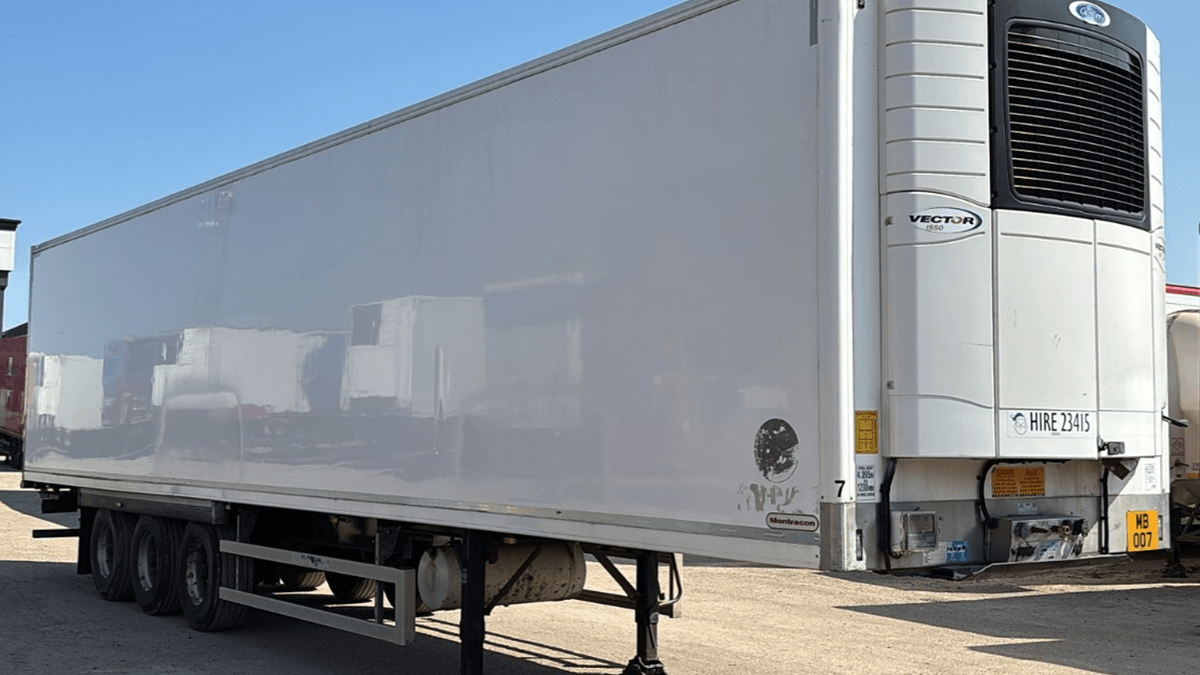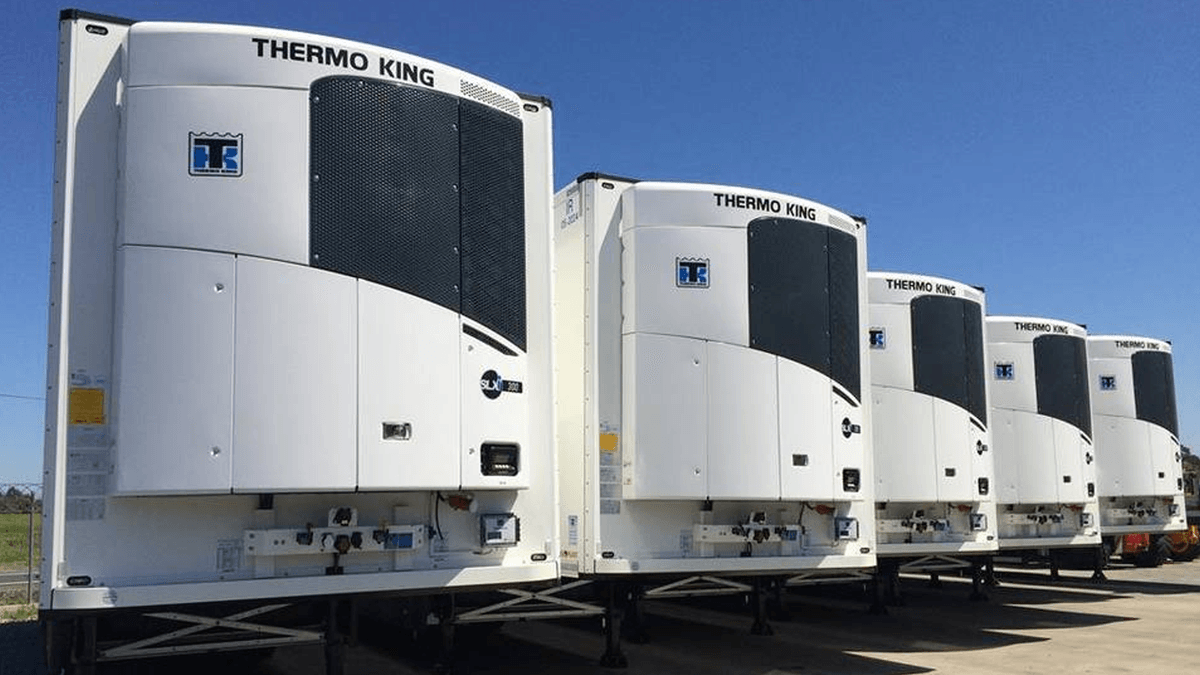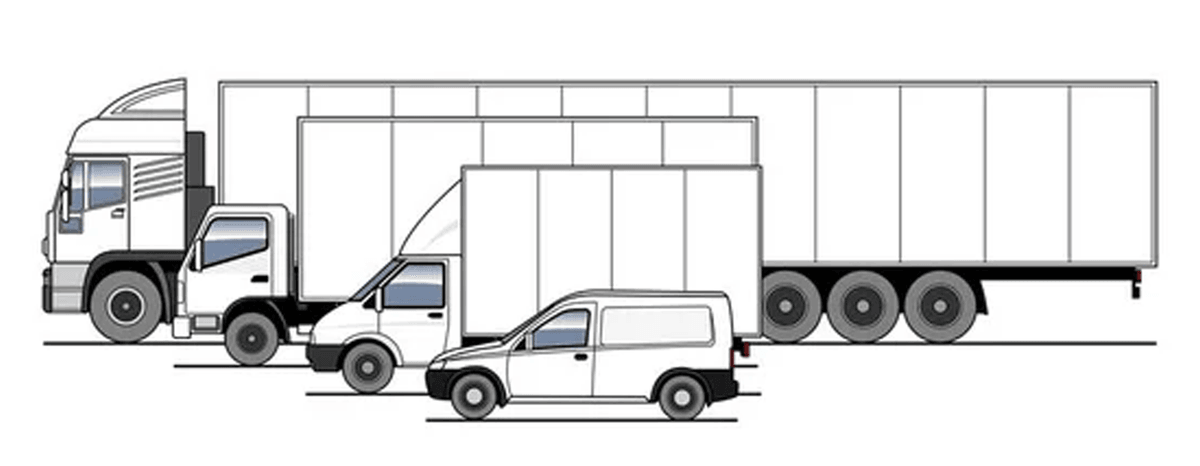Every long-haul trucker knows that a reliable refrigerator for tractor trailer truck isn’t just a convenience—it’s a critical investment in preserving cargo integrity, ensuring driver comfort, and maintaining regulatory compliance across thousands of miles. In an industry where even a single hour of temperature fluctuation can ruin thousands of dollars in perishable goods, the right refrigerator for tractor trailer truck becomes the backbone of your cold chain logistics. Whether you’re transporting fresh produce, pharmaceuticals, or frozen foods, or simply need to keep meals and beverages cool during extended hauls, choosing the best refrigerator for tractor trailer truck requires careful consideration of performance, durability, energy efficiency, and compliance with industry standards.
This comprehensive guide will walk you through everything you need to know about refrigerator for tractor trailer truck systems in 2024. From understanding the different types of refrigerator for tractor trailer truck models available to comparing key features like cooling capacity and power sources, from maintenance tips to maximize lifespan to insights on where to buy the most reliable units, we’ve got you covered. By the end of this article, you’ll be equipped to make an informed decision that aligns with your specific needs—whether you’re a solo owner-operator or managing a large fleet of tractor trailers. Let’s dive into the world of refrigerator for tractor trailer truck technology.
Types of Refrigerator for Tractor Trailer Truck: Choosing the Right Model for Your Needs
Not all refrigerator for tractor trailer truck units are created equal. The market offers a variety of models designed to meet different operational requirements, from basic cooling for personal use to advanced systems for commercial cargo transport. Understanding the types of refrigerator for tractor trailer truck available is the first step in selecting the right one for your specific application. Here’s a detailed breakdown:
By Power Source
The power source of your refrigerator for tractor trailer truck is a critical consideration, as it impacts energy efficiency, installation requirements, and operational flexibility.
DC Electric Refrigerator for Tractor Trailer Truck
Most common in modern tractor trailers, DC electric refrigerator for tractor trailer truck units operate on the vehicle’s 12V or 24V electrical system. These models are popular because they draw power directly from the truck’s battery or alternator, eliminating the need for additional fuel sources. Advantages include lower operating costs compared to diesel-powered units and quieter operation. However, it’s essential to choose a DC electric refrigerator for tractor trailer truck with efficient power management to prevent battery drain during extended idle periods.
Haisen’s 12V/24V dual-voltage refrigerator for tractor trailer truck series is a standout in this category, featuring smart power consumption technology that adjusts cooling output based on battery levels. This ensures your refrigerator for tractor trailer truck maintains optimal temperatures without compromising your truck’s ability to start.
Diesel-Powered Refrigerator for Tractor Trailer Truck
Diesel-powered refrigerator for tractor trailer truck units (often called “reefer units”) are typically used for large-scale commercial cargo transport. These standalone systems have their own diesel engines to power the refrigeration cycle, making them ideal for long-haul trips where consistent cooling is critical regardless of the truck’s engine status. They offer higher cooling capacity than DC electric models, making them suitable for frozen cargo or large loads.
However, diesel refrigerator for tractor trailer truck units tend to be heavier, louder, and more expensive to operate due to fuel costs. They also require more maintenance, including regular oil changes and filter replacements for the diesel engine. For operators transporting temperature-sensitive goods over long distances, the reliability of a diesel refrigerator for tractor trailer truck often justifies these costs.
Solar-Powered Refrigerator for Tractor Trailer Truck
A growing trend in sustainable logistics, solar-powered refrigerator for tractor trailer truck systems integrate rooftop solar panels with battery storage to reduce reliance on traditional power sources. These models can operate independently or as a supplement to DC electric or diesel systems, significantly lowering carbon emissions and fuel consumption. According to recent case studies, solar-powered refrigerator for tractor trailer truck setups can reduce CO2 emissions by up to 24 tonnes per year .
Haisen’s solar-assisted refrigerator for tractor trailer truck line combines high-efficiency solar panels with advanced battery technology, allowing for off-grid operation during daylight hours. This is particularly beneficial for drivers who spend extended periods in remote areas or want to reduce their environmental impact.
By Capacity and Size
Refrigerator for tractor trailer truck units come in various sizes to accommodate different storage needs, from compact models for personal use to large systems for commercial cargo.
Compact Refrigerator for Tractor Trailer Truck (1-5 cubic feet)
Designed primarily for driver comfort, compact refrigerator for tractor trailer truck units fit easily in sleeper cabs, storing snacks, beverages, and pre-prepared meals. These models typically range from 1 to 5 cubic feet in capacity and are lightweight, making them easy to install. While they lack the cooling power of larger units, they’re energy-efficient and perfect for solo drivers or short-haul operations.
Medium-Sized Refrigerator for Tractor Trailer Truck (6-15 cubic feet)
Medium-sized refrigerator for tractor trailer truck units strike a balance between capacity and space efficiency, suitable for both personal use and small-scale cargo transport. They can handle larger quantities of food, medications, or samples that require temperature control. These models often feature adjustable shelves and temperature zones, offering more versatility than compact units.
Large Commercial Refrigerator for Tractor Trailer Truck (16+ cubic feet)
Large commercial refrigerator for tractor trailer truck systems are designed for full cargo refrigeration, commonly found in reefer trailers. These units can maintain precise temperatures across entire trailer loads, ranging from -20°F to 70°F, and often include advanced features like multi-zone cooling and remote temperature monitoring. They’re essential for transporting fresh produce, meats, dairy, pharmaceuticals, and other perishables over long distances.

By Cooling Technology
The cooling technology used in your refrigerator for tractor trailer truck affects its performance, energy efficiency, and maintenance requirements.
Compressor-Based Refrigerator for Tractor Trailer Truck
Most modern refrigerator for tractor trailer truck units use compressor technology, similar to residential refrigerators but optimized for mobile use. Compressor-based systems circulate refrigerant through a closed loop, removing heat from the interior to maintain low temperatures. They offer fast cooling, precise temperature control, and reliable performance in varying ambient conditions.
Haisen’s compressor-driven refrigerator for tractor trailer truck models utilize variable-speed compressors that adjust operation based on cooling demand, reducing energy consumption while maintaining consistent temperatures. This technology is particularly effective for units that need to handle frequent door openings or temperature adjustments.
Absorption Refrigerator for Tractor Trailer Truck
Absorption refrigerator for tractor trailer truck units use a heat source (electricity, propane, or diesel) to power a chemical reaction that cools the interior. These models have no moving parts, making them quieter and more durable than compressor-based systems. However, they are less energy-efficient and take longer to cool down, making them better suited for steady-temperature applications rather than frequent temperature changes.
Thermoelectric Refrigerator for Tractor Trailer Truck
Thermoelectric refrigerator for tractor trailer truck units use the Peltier effect to create a temperature difference between two sides of a semiconductor material. They are lightweight, compact, and affordable but have limited cooling capacity—typically only able to lower temperatures by 30-40°F below ambient. These models are best for mild climates or short trips where extreme cooling isn’t necessary.
Key Features to Consider When Buying a Refrigerator for Tractor Trailer Truck
Selecting the right refrigerator for tractor trailer truck involves evaluating numerous features to ensure it meets your specific needs. With so many options on the market, focusing on the most critical factors will help you narrow down your choices and invest in a unit that delivers long-term value. Here are the key features to consider:
Temperature Range and Control Precision
The primary function of a refrigerator for tractor trailer truck is to maintain stable temperatures, so this should be your top consideration. Different cargo types require different temperature ranges:
- Fresh produce: 32–40°F
- Dairy products: 33–38°F
- Frozen foods: -10–0°F
- Pharmaceuticals: 36–46°F (varies by medication)
Look for a refrigerator for tractor trailer truck that can consistently operate within your required range, even in extreme ambient temperatures (from -20°F in winter to 120°F in summer). Precision is equally important—temperature fluctuations of more than 2–3°F can compromise cargo quality. Advanced models offer digital thermostats with ±1°F accuracy, while some commercial units include multi-zone controls to maintain different temperatures in separate compartments.
Haisen’s premium refrigerator for tractor trailer truck series features adaptive temperature control that adjusts cooling output based on external conditions, ensuring stability even when the truck is parked in direct sunlight or cold weather.
Energy Efficiency
Energy efficiency directly impacts your operating costs, especially for long-haul operations. A more efficient refrigerator for tractor trailer truck consumes less fuel or electricity, reducing expenses and extending battery life. When evaluating efficiency, look for:
- COP (Coefficient of Performance): This ratio of cooling output to energy input is a key metric. For electric refrigerator for tractor trailer truck units, a COP of 1.40 or higher meets 1st class energy efficiency standards under T/HNEE004-2024 .
- Energy Star certification: While less common for mobile units, this indicates compliance with strict efficiency guidelines.
- Power management features: Systems that automatically reduce power consumption during low-demand periods or when battery levels are low.
Solar-assisted models offer additional efficiency benefits by leveraging renewable energy. For example, Birds Eye’s solar-powered refrigerator for tractor trailer truck setup reduced emissions by 24 tonnes annually while lowering fuel costs .
Durability and Build Quality
A refrigerator for tractor trailer truck operates in harsh conditions—vibrations from the road, temperature extremes, and constant movement. Durable construction is essential to withstand these challenges. Key durability features include:
- Insulation quality: High-density foam insulation with an R-value of 10 or higher minimizes heat transfer.
- Rugged exterior: Stainless steel or reinforced plastic cabinets resist dents and corrosion.
- Shock-resistant components: Compressors and internal parts designed to handle vibration.
- Weather resistance: Sealed gaskets and drainage systems prevent water damage from rain or condensation.
Haisen’s refrigerator for tractor trailer truck units undergo rigorous testing, including vibration tests simulating 100,000+ miles of road travel, to ensure durability in real-world conditions.
Size and Installation Flexibility
The size of your refrigerator for tractor trailer truck must fit your available space while providing adequate storage capacity. Measure your installation area carefully, considering not just width and height but also depth and clearance for door openings. For sleeper cabs, compact models that fit under bunks or in cabinets are ideal, while trailer-mounted commercial units require precise dimension matching.
Installation flexibility is another factor—some refrigerator for tractor trailer truck models offer multiple mounting options (flush-mount, freestanding, or under-counter) to 适应 different truck configurations. Lightweight units are easier to install and reduce payload impact.
Monitoring and Telematics Integration
Modern refrigerator for tractor trailer truck systems often include monitoring features that provide real-time temperature data, alerting you to issues before they compromise cargo. Basic models may have LED displays and audible alarms, while advanced units offer:
- Remote monitoring: Via smartphone apps or fleet management software, allowing you to check temperatures from anywhere.
- Data logging: Automatic recording of temperature history for regulatory compliance documentation.
- Diagnostic alerts: Notifications for system issues like compressor failure or low refrigerant levels.
Haisen’s smart refrigerator for tractor trailer truck line integrates with leading telematics platforms, providing fleet managers with comprehensive visibility into cooling system performance across their entire fleet.

Power Source Compatibility
Ensure your refrigerator for tractor trailer truck is compatible with your truck’s power system. Most units are designed for 12V or 24V DC power, but some commercial models require 120V AC connections (typically via shore power or generators). If you’re considering a solar-assisted system, verify the panel wattage and battery capacity needed to support your refrigerator for tractor trailer truck’s energy demands.
Dual-power models offer added flexibility, switching between DC and AC power as available. This is particularly useful for trucks that spend time at terminals with shore power access.
Noise Level
For driver comfort, consider the noise level of your refrigerator for tractor trailer truck, especially for units installed in sleeper cabs. Compressor-based systems typically produce 40–60 decibels of noise during operation—similar to a quiet conversation. Look for models with noise-dampening features like insulated compressor compartments or variable-speed fans that reduce sound during idle periods.
Warranty and Support
A strong warranty indicates manufacturer confidence in their refrigerator for tractor trailer truck’s quality. Look for coverage of at least 2–3 years for parts and labor, with extended options available for commercial units. Equally important is access to reliable technical support and service networks, especially for long-haul drivers who may need assistance far from home.
Haisen offers a 5-year warranty on its premium refrigerator for tractor trailer truck models, along with 24/7 technical support and a network of service centers across North America, Europe, and Asia.
How to Install a Refrigerator for Tractor Trailer Truck: A Step-by-Step Guide
Proper installation is critical to ensuring your refrigerator for tractor trailer truck operates efficiently and safely. While commercial units often require professional installation, many compact and medium-sized refrigerator for tractor trailer truck models can be installed by experienced truckers or fleet maintenance personnel. Follow this step-by-step guide:
Pre-Installation Preparation
Before installing your refrigerator for tractor trailer truck, take these essential steps:
5.1.1 Assess Your Installation Space
Measure the area where you plan to install your refrigerator for tractor trailer truck, ensuring there’s enough clearance for:
- The unit’s dimensions (width, height, depth)
- Door swing (check if the door opens left, right, or is reversible)
- Ventilation (most refrigerator for tractor trailer truck units require 2–4 inches of space around vents for proper airflow)
For sleeper cab installations, consider weight distribution—avoid overloading one side of the cab.
Verify Power Requirements
Confirm your truck’s electrical system can support your refrigerator for tractor trailer truck:
- Check voltage requirements (12V, 24V, or dual-voltage)
- Calculate power draw (in amps) and ensure your alternator and battery can handle the load
- For solar installations, determine panel placement and battery storage location
Consult your truck’s manual to avoid overloading circuits, which can cause electrical fires or system damage.
Gather Tools and Materials
You’ll need:
- Screwdrivers, wrenches, and drill (for mounting)
- Electrical connectors, fuses, and wire strippers
- Mounting brackets or straps (specific to your refrigerator for tractor trailer truck model)
- Sealant or weatherstripping (for exterior installations)
- Voltage tester to verify connections
Installation Steps for Compact Refrigerator for Tractor Trailer Truck Units
Secure Mounting
- Position the refrigerator for tractor trailer truck in your chosen location, ensuring it’s level (use a bubble level to check).
- Mark mounting holes based on the unit’s base or brackets.
- Drill pilot holes and secure the refrigerator for tractor trailer truck using bolts or mounting straps. For sleeper cabs, use existing anchor points when possible to avoid damaging structural components.
Electrical Connection
- Disconnect the truck’s battery before making electrical connections.
- Run the power cord to your truck’s electrical system, avoiding areas with excessive heat, moving parts, or sharp edges.
- Connect to a dedicated circuit with the appropriate fuse (check your refrigerator for tractor trailer truck manual for amperage requirements).
- For 12V/24V systems, use ring terminals or marine-grade connectors for secure attachment to the battery or auxiliary power outlet.
- Reconnect the battery and test the unit to ensure it powers on.
Ventilation Setup
- Ensure air vents on the refrigerator for tractor trailer truck are unobstructed.
- For units installed in enclosed cabinets, add ventilation fans if necessary to prevent heat buildup.
- Check that warm air can exhaust freely, as trapped heat reduces efficiency and increases power consumption.

Installation for Commercial Refrigerator for Tractor Trailer Truck Units
Commercial refrigerator for tractor trailer truck systems (especially diesel-powered units) require professional installation due to their complexity and size. Here’s what the process typically involves:
Mounting the Unit
- Position the refrigerator for tractor trailer truck on the trailer front or roof according to manufacturer specifications.
- Secure using heavy-duty bolts and anti-vibration mounts to reduce road stress.
- Ensure proper alignment to maintain aerodynamics and prevent wind noise.
Power System Integration
- For diesel units: Connect fuel lines to the truck’s diesel tank with proper filtration and shutoff valves.
- For electric units: Install dedicated wiring harnesses to the truck’s electrical system, including battery isolators to prevent drain.
- Integrate with the truck’s ignition system to ensure the refrigerator for tractor trailer truck shuts down safely when the engine turns off.
Calibration and Testing
- Program temperature settings and alarms according to your cargo requirements.
- Test cooling performance in controlled conditions before first use.
- Verify telematics connections and data logging functionality for regulatory compliance.
Post-Installation Checks
After installing your refrigerator for tractor trailer truck:
- Check for secure mounting—no movement or rattling when the truck is in motion.
- Verify all electrical connections are tight and insulated.
- Test temperature control by setting different temperatures and monitoring performance.
- Check for air leaks around doors or vents, sealing with weatherstripping if necessary.
- Review the installation with a qualified technician if you’re unsure about any aspect.
Proper installation not only ensures optimal performance but also prevents safety hazards and voiding of your refrigerator for tractor trailer truck’s warranty.
Maintenance Tips to Extend the Lifespan of Your Refrigerator for Tractor Trailer Truck
A well-maintained refrigerator for tractor trailer truck will operate more efficiently, reduce the risk of breakdowns, and last longer—ultimately saving you money on repairs and replacements. Follow these maintenance tips to keep your refrigerator for tractor trailer truck in top condition:
Daily Maintenance Tasks
Temperature Checks
Start each day by verifying your refrigerator for tractor trailer truck is maintaining the correct temperature. Use a calibrated thermometer (separate from the unit’s built-in display) to ensure accuracy. Record temperatures in a logbook or digital system to track performance over time. Sudden temperature fluctuations can indicate issues like a failing compressor or door seal leak.
Visual Inspection
Check for:
- Obstructions in vents or fans
- Ice buildup in freezer compartments (for models with freezers)
- Condensation or water leaks around doors or drainage points
- Loose wiring or damaged cords
Addressing small issues early prevents them from becoming major problems during a haul.
Door Seal Cleaning
Wipe door gaskets with a mild detergent and water daily to remove food residue and debris. A clean seal ensures a tight closure, preventing cold air loss and reducing energy consumption. Test the seal by closing a dollar bill in the door—if it pulls out easily, the gasket may need adjustment or replacement.
Weekly Maintenance Tasks
Interior Cleaning
Empty your refrigerator for tractor trailer truck weekly and clean all surfaces with a solution of warm water and baking soda (avoid harsh chemicals that can damage interior components). Remove expired items and organize contents to improve airflow. Check for and clean any spillages immediately to prevent odors and bacterial growth.
Condenser Coil Cleaning
Dust and debris on condenser coils reduce cooling efficiency. Use a soft brush or compressed air to clean coils on your refrigerator for tractor trailer truck, taking care not to bend fins. For units with accessible coils (typically on the back or bottom), this simple task can improve efficiency by up to 30%.
Drain Line Inspection
Clear any clogs in the drain line that removes condensation from your refrigerator for tractor trailer truck. A clogged drain can cause water buildup and mold growth. Use a small brush or pipe cleaner to clear debris, and flush with warm water if necessary.
Monthly Maintenance Tasks
Battery and Electrical System Check
For DC-powered refrigerator for tractor trailer truck units:
- Inspect battery terminals for corrosion, cleaning with a wire brush if needed
- Check voltage levels to ensure proper charging
- Test fuses and circuit breakers for damage
For solar-assisted models, inspect panels for dirt, damage, or misalignment that could reduce efficiency. Clean panels with a soft cloth and water if they’re dirty.
Fan and Motor Inspection
Listen for unusual noises from fans or motors in your refrigerator for tractor trailer truck, which can indicate bearing wear or debris interference. Lubricate moving parts if specified in your owner’s manual (note: many modern units have sealed, maintenance-free motors).
Calibration Verification
Compare your refrigerator for tractor trailer truck’s built-in thermometer with a known accurate thermometer. If there’s a discrepancy of more than 2°F, calibrate according to the manufacturer’s instructions or contact a service technician.
Quarterly and Annual Maintenance
Refrigerant Level Check
Low refrigerant levels indicate a leak in your refrigerator for tractor trailer truck’s cooling system. While checking refrigerant requires specialized tools, signs of low levels include reduced cooling capacity and longer run times. Have a certified technician inspect refrigerant levels quarterly for commercial units, annually for personal units.
Compressor Inspection
The compressor is the heart of your refrigerator for tractor trailer truck. A qualified technician should:
- Check for unusual noises or vibrations
- Inspect electrical connections for heat damage
- Verify proper pressure levels
Early detection of compressor issues can prevent costly failures.
6.3.3 Software Updates
For smart refrigerator for tractor trailer truck models with telematics, ensure firmware and software are updated regularly. Manufacturers often release updates that improve efficiency, add features, or address security vulnerabilities.
Seasonal Maintenance
6.4.1 Summer Preparation
Before hot weather, ensure your refrigerator for tractor trailer truck’s cooling system is ready for high ambient temperatures:
- Clean condenser coils thoroughly
- Check that ventilation systems are working properly
- Test performance at maximum cooling capacity
Winter Preparation
In cold climates:
- Inspect heating elements (if equipped) for defrost functions
- Ensure drain lines don’t freeze by adding a small amount of RV antifreeze if recommended
- Check that insulation is intact to prevent condensation and frost buildup
Maintenance for Diesel-Powered Refrigerator for Tractor Trailer Truck Units
Diesel reefer units require additional maintenance:
- Change engine oil and filters every 1,000 hours of operation
- Inspect fuel lines for leaks and replace fuel filters regularly
- Clean or replace air filters to ensure proper combustion
- Check coolant levels and inspect for leaks in the cooling system
- Test starter motors and alternators for reliable operation
Following the manufacturer’s maintenance schedule for your specific refrigerator for tractor trailer truck model is crucial—deviating from recommended intervals can void warranties and reduce lifespan. Many manufacturers, including Haisen, offer maintenance reminder services or apps to help track required tasks.

Common Problems with Refrigerator for Tractor Trailer Truck Units and Troubleshooting
Even with proper maintenance, refrigerator for tractor trailer truck units can experience issues. Knowing how to troubleshoot common problems can save you time and money on unnecessary service calls. Here are the most frequent issues and their solutions:
Refrigerator for Tractor Trailer Truck Not Cooling Properly
This is the most common complaint with refrigerator for tractor trailer truck units. Possible causes and solutions:
Power Supply Issues
- Problem: Unit isn’t receiving adequate power.
- Check: Verify the refrigerator for tractor trailer truck is properly plugged in and the circuit breaker hasn’t tripped. Test the outlet with another device. For battery-powered units, check voltage levels—below 10.5V for 12V systems can prevent cooling.
- Solution: Secure loose connections, reset breakers, or recharge/replace batteries. For solar units, ensure panels are clean and positioned to receive sunlight.
Dirty Condenser Coils
- Problem: Dust and debris block heat dissipation.
- Check: Visually inspect coils for buildup.
- Solution: Clean coils with compressed air or a soft brush. This simple fix resolves cooling issues in 30% of cases.
Door Seal Issues
- Problem: Warm air enters due to a damaged or dirty seal.
- Check: Close a piece of paper in the door—if it falls out easily, the seal is faulty.
- Solution: Clean the seal with mild detergent. If damaged, replace the gasket (available from your refrigerator for tractor trailer truck manufacturer).
Overloading
- Problem: Too much food blocks airflow.
- Check: Ensure there’s space between items for air circulation.
- Solution: Rearrange contents, avoiding overpacking.
Refrigerant Leak
- Problem: Low refrigerant reduces cooling capacity.
- Check: Look for oil stains around connections (indicates leaks).
- Solution: Requires professional repair to locate leaks, recharge refrigerant, and seal the system.
Refrigerator for Tractor Trailer Truck Making Unusual Noises
Strange sounds from your refrigerator for tractor trailer truck can indicate mechanical issues:
Vibrating Noises
- Problem: Unit isn’t properly secured, causing rattling during truck movement.
- Solution: Tighten mounting brackets or add anti-vibration pads.
Loud Compressor
- Problem: Compressor struggling due to dirty coils or refrigerant issues.
- Check: Clean coils first—if noise persists, it may indicate compressor wear.
- Solution: Professional inspection; compressor replacement may be needed for severe cases.
Fan Noise
- Problem: Debris in fan blades or failing motor.
- Check: Turn off power and inspect fan for obstructions.
- Solution: Remove debris; replace fan motor if bearing noise is present.
Refrigerator for Tractor Trailer Truck Freezing Contents Unexpectedly
- Problem: Temperature settings too low or thermostat malfunction.
- Check: Verify thermostat settings; test with an external thermometer.
- Solution: Adjust settings. If issue persists, the thermostat may need calibration or replacement.
Water Leaks in Refrigerator for Tractor Trailer Truck
- Problem: Clogged drain line or door seal issues.
- Check: Inspect drain pan and line for clogs.
- Solution: Clear drain line with a pipe cleaner; ensure door closes properly to prevent condensation.
Error Codes on Refrigerator for Tractor Trailer Truck Display
Modern refrigerator for tractor trailer truck units show error codes for specific issues:
- E1/E01: Temperature sensor failure—replace sensor.
- E2/E02: Power supply issues—check voltage and connections.
- E3/E03: Defrost system malfunction—inspect heating elements.
- E4/E04: Compressor error—professional diagnosis required.
Consult your refrigerator for tractor trailer truck manual for model-specific error codes and troubleshooting steps.
When to Call a Professional
While many issues can be resolved with basic troubleshooting, seek professional help for:
- Refrigerant leaks or compressor problems
- Electrical issues beyond basic connection checks
- Persistent cooling problems after basic fixes
- Warranty-covered repairs (DIY attempts may void coverage)
Haisen offers 24/7 technical support for their refrigerator for tractor trailer truck units, with certified technicians available to diagnose issues over the phone or dispatch to your location if needed.

Regulatory Compliance for Refrigerator for Tractor Trailer Truck Units
Operating a refrigerator for tractor trailer truck requires adherence to numerous regulations designed to ensure cargo safety, driver safety, and environmental protection. Understanding these requirements is essential to avoid penalties and maintain operational efficiency:
Safety Standards
FMVSS No. 302 Compliance
In the United States, the National Highway Traffic Safety Administration (NHTSA) mandates compliance with Federal Motor Vehicle Safety Standard No. 302 for all refrigerator for tractor trailer truck units installed in vehicle interiors . This standard specifies flammability requirements for interior materials, including:
- The front door of the refrigerator for tractor trailer truck (which is in the occupant air space) must meet flammability standards
- Other surfaces contained within cabinets may be exempt if they’re more than 13mm from the cabinet’s inner surface
- Self-certification by manufacturers that their refrigerator for tractor trailer truck units meet these standards
Non-compliant units can result in vehicle recalls or fines, making it crucial to choose a certified refrigerator for tractor trailer truck model.
Electrical Safety
Refrigerator for tractor trailer truck units must comply with electrical safety standards to prevent fire hazards:
- UL 471 certification for commercial refrigeration equipment
- Proper grounding and circuit protection (fuses or breakers)
- Compliance with SAE J560 for 12V/24V vehicle electrical systems
Haisen’s refrigerator for tractor trailer truck units undergo rigorous testing to meet these standards, ensuring safe operation in mobile environments.
Temperature Control Regulations
Food Safety Regulations
For refrigerator for tractor trailer truck units transporting food products:
- FDA Food Code requires maintaining potentially hazardous foods at ≤41°F (5°C) or ≥135°F (57°C)
- USDA regulations mandate temperature logging for meat, poultry, and egg products
- EU Regulation 852/2004 sets standards for food hygiene during transport
These regulations require your refrigerator for tractor trailer truck to maintain precise temperatures and often include requirements for temperature monitoring and documentation.
Pharmaceutical Transport Standards
Transporting medications requires even stricter temperature control:
- FDA’s Good Distribution Practice (GDP) guidelines for pharmaceuticals
- IATA Temperature Control Regulations for air-transported pharmaceuticals (often applied to ground transport as well)
- WHO standards requiring temperature monitoring throughout the supply chain
Refrigerator for tractor trailer truck units used for pharmaceutical transport must often include calibrated data loggers and alarms to ensure compliance.
Environmental Regulations
Emissions Standards
Diesel-powered refrigerator for tractor trailer truck units must comply with emissions regulations:
- EPA Tier 4 standards in the U.S. (reducing particulate matter and nitrogen oxides)
- EU Stage V regulations for off-road engines
- California Air Resources Board (CARB) requirements for low-emission refrigeration
Many manufacturers, including Haisen, offer low-emission refrigerator for tractor trailer truck models that meet or exceed these standards.
Refrigerant Regulations
The type of refrigerant used in your refrigerator for tractor trailer truck is regulated under:
- Montreal Protocol and subsequent amendments (phasing out ozone-depleting substances)
- EPA SNAP program (Significant New Alternatives Policy) in the U.S.
- EU F-Gas Regulation (limiting hydrofluorocarbons with high global warming potential)
Modern refrigerator for tractor trailer truck units use environmentally friendly refrigerants like R-134a or R-450A, which have lower global warming potential.
Documentation and Record-Keeping
Regulatory compliance requires proper documentation for your refrigerator for tractor trailer truck:
- Temperature logs (manual or automatic) showing continuous monitoring
- Calibration records for thermometers and sensors
- Maintenance records demonstrating proper upkeep
- Compliance certificates for the refrigerator for tractor trailer truck unit itself
Failure to maintain adequate records can result in fines even if the unit performed properly.
How Haisen Ensures Compliance
Haisen designs its refrigerator for tractor trailer truck units with global regulations in mind:
- All models meet FMVSS No. 302, UL, and CE safety standards
- Commercial units include built-in data loggers compliant with FDA and EU requirements
- Refrigerants used meet Montreal Protocol and F-Gas regulations
- Documentation packages include all necessary compliance certificates
Choosing a compliant refrigerator for tractor trailer truck from a reputable manufacturer simplifies regulatory adherence and reduces compliance risks.
Future Trends in Refrigerator for Tractor Trailer Truck Technology
The refrigerator for tractor trailer truck industry is evolving rapidly, driven by advancements in technology, increasing sustainability demands, and changing logistics needs. Here are the key trends shaping the future of refrigerator for tractor trailer truck units:

Increased Energy Efficiency
As fuel costs rise and environmental regulations tighten, energy efficiency will remain a top priority for refrigerator for tractor trailer truck development. Manufacturers are focusing on:
- Advanced compressor technology with variable-speed operation
- Improved insulation materials (aerogels and vacuum-insulated panels)
- Smart energy management systems that optimize cooling based on cargo type and external conditions
- Compliance with stricter efficiency standards like T/HNEE004-2024, which establishes higher benchmarks for COP values
Haisen’s research team is already testing next-generation refrigerator for tractor trailer truck prototypes with COP values exceeding 1.6, representing a 15% improvement over current models.
Solar Integration and Renewable Energy
Solar-powered refrigerator for tractor trailer truck systems are gaining popularity as solar technology improves and costs decrease. Trends include:
- Flexible, lightweight solar panels integrated into trailer roofs
- Advanced battery storage systems with longer lifespans (8–10 years)
- Hybrid systems that seamlessly switch between solar, DC power, and shore power
- Energy harvesting from truck movement to supplement power
Case studies like Birds Eye’s solar refrigerated trucks demonstrate that these systems can significantly reduce carbon footprints while lowering operating costs . By 2026, industry experts predict that 30% of new refrigerator for tractor trailer truck units will include solar capabilities.
Smart Monitoring and IoT Integration
The Internet of Things (IoT) is transforming refrigerator for tractor trailer truck technology through:
- Real-time remote monitoring via cloud platforms
- Predictive maintenance alerts based on performance data
- Integration with fleet management systems for coordinated logistics
- AI-powered temperature optimization that learns from historical data
Haisen’s Connect platform already offers many of these features, allowing fleet managers to monitor every refrigerator for tractor trailer truck in their fleet from a single dashboard and receive instant alerts for any issues.
Alternative Refrigerants and Green Technology
Environmental concerns are driving the development of more sustainable refrigerator for tractor trailer truck systems:
- Low-global-warming-potential (GWP) refrigerants like R-1234yf and R-600a
- Magnetic refrigeration technology (no harmful refrigerants, lower energy use)
- Waste heat recovery systems that utilize truck engine heat for cooling
- Bio-based insulation materials with improved thermal performance
These innovations not only reduce environmental impact but often improve efficiency and reduce maintenance needs.
Autonomous Integration
As autonomous trucking technology advances, refrigerator for tractor trailer truck systems will evolve to:
- Integrate with self-driving vehicle systems for coordinated operation
- Include autonomous defrosting and cleaning capabilities
- Feature remote diagnostics and repair via drone or mobile service units
- Adapt cooling patterns based on GPS-derived route and weather data
While fully autonomous trucks are still in development, refrigerator for tractor trailer truck manufacturers like Haisen are already designing units with these future capabilities in mind.
Customization and Modular Design
Increasingly, refrigerator for tractor trailer truck units are being designed with modular components to:
- Allow easy upgrades as technology advances
- Enable customization for specific cargo needs (pharmaceuticals, frozen foods, etc.)
- Facilitate faster repairs by swapping modular components
- Adapt to different truck models without major modifications
This trend reduces total cost of ownership and extends the useful life of refrigerator for tractor trailer truck units.
Conclusion: Choosing the Best Refrigerator for Tractor Trailer Truck for Your Needs
A reliable refrigerator for tractor trailer truck is an essential investment for any trucker or fleet operator transporting temperature-sensitive cargo or needing to store food and beverages during long hauls. As we’ve explored in this comprehensive guide, the right refrigerator for tractor trailer truck can protect your cargo, reduce operational costs, ensure regulatory compliance, and enhance driver comfort.
When selecting your refrigerator for tractor trailer truck, remember to prioritize:
- Temperature control precision to maintain cargo integrity
- Energy efficiency to reduce operating costs
- Durability to withstand the rigors of the road
- Compliance with safety and environmental regulations
- Support and warranty for peace of mind
Haisen’s range of refrigerator for tractor trailer truck models stands out in the market, offering innovative features like smart temperature management, solar integration, and rugged construction designed specifically for mobile environments. Whether you need a compact unit for personal use or a commercial system for large-scale cargo transport, Haisen has a refrigerator for tractor trailer truck solution to meet your needs.
By following the maintenance tips outlined in this guide and choosing a reputable supplier, your refrigerator for tractor trailer truck will provide reliable service for years to come. Remember that investing in a quality unit upfront saves money in the long run through reduced energy costs, fewer repairs, and minimized cargo loss.
The world of logistics waits for no one, and temperature-controlled transport continues to grow in importance. Equipping your tractor trailer with the right refrigerator system ensures you stay competitive, compliant, and successful in this dynamic industry.
Ready to find your perfect refrigerator for tractor trailer truck? Contact Haisen today for a personalized consultation and discover how their innovative refrigeration solutions can transform your operations.
Safe travels and cool cargo!

